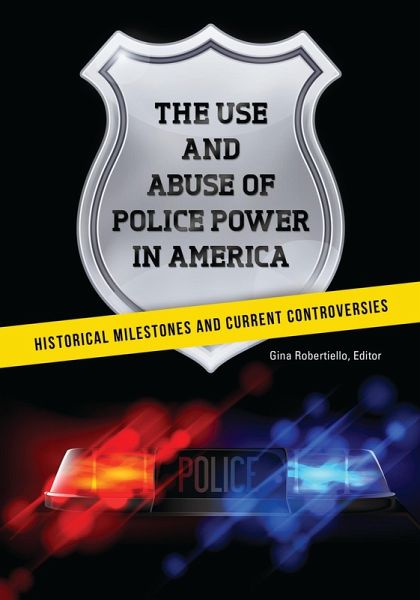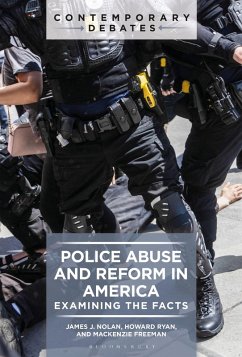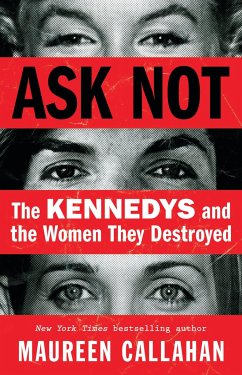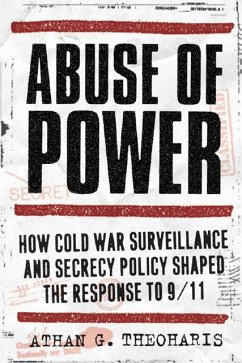
The Use and Abuse of Police Power in America
Historical Milestones and Current Controversies
Herausgeber: Robertiello, Gina
Versandkostenfrei!
Versandfertig in 1-2 Wochen
98,99 €
inkl. MwSt.

PAYBACK Punkte
49 °P sammeln!
Providing a timely and much-needed investigation of how U.S. law enforcement carries out its public safety and crime fighting mandates, this book is an invaluable resource for students, educators, and concerned citizens. Does America face an epidemic of police officers abusing their powers and disregarding constitutional rights, especially in communities of color? Or are such accusations unfair, especially given the enormous challenges of enforcing the law in 21st-century America? This book provides a unique frame of reference for understanding how some of the issues between the police and the...
Providing a timely and much-needed investigation of how U.S. law enforcement carries out its public safety and crime fighting mandates, this book is an invaluable resource for students, educators, and concerned citizens. Does America face an epidemic of police officers abusing their powers and disregarding constitutional rights, especially in communities of color? Or are such accusations unfair, especially given the enormous challenges of enforcing the law in 21st-century America? This book provides a unique frame of reference for understanding how some of the issues between the police and the public emerged, identifying events that have shaped current relationships between the police and the public, as well as the public's expectations and perceptions of the police. An authoritative resource for understanding modern law enforcement and its relationship with American communities, this volume addresses subjects including the legal underpinnings of various law enforcement actions and practices; the so-called militarization of police departments; the increased use of force and surveillance to combat crime and terrorism, and to generally "keep the peace"; and the perspectives of Black Lives Matter activists and other critics of American law enforcement. The entries provide readers with expert analysis of current topics related to the intensifying debate about the American police state; examine the scope of law enforcement issues that have existed for centuries, and explain why they continue to exist; and cover new mandates for exercising police power, enabling readers to critically analyze what is presented to them in the media. Included throughout the book are excerpts from important laws, speeches, reports, and studies pertaining to the subject of the use and abuse of police power in the United States














